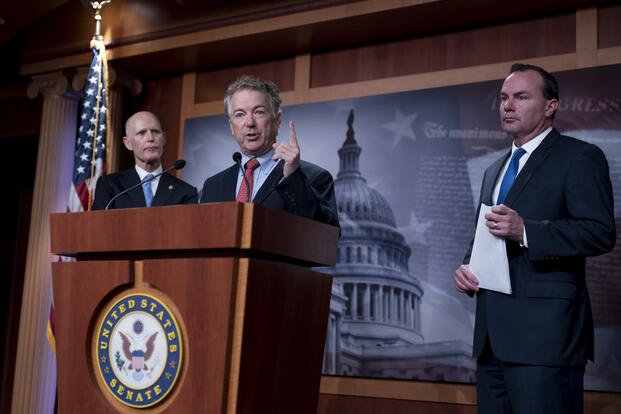Approximately 900 veterans who were discharged from service during the previous Biden administration for refusal to take the COVID vaccine are now eligible for GI Bill education benefits, with potentially thousands more getting the same opportunity.
In January, President Donald Trump signed Executive Order 14184, “Reinstating Service Members Discharged Under the Military’s COVID-19 Vaccination Mandate,” which called for a reversal of pandemic-era mandates put into effect Aug. 24, 2021, by former Secretary of State Lloyd Austin. The president described the mandate as “unfair, overbroad, and [a] completely unnecessary burden on our service members.” Austin rescinded the mandate on Jan. 10, 2023.
Defense officials reviewed records and found that 899 veterans are now eligible for GI Bill education benefits, with thousands more possibly benefiting from Trump’s executive order. The GI Bill dates back to 1944, helping veterans and their family members get money to cover all or some educational and vocational costs.
“The Biden Administration’s authoritarian COVID mandates upended the lives and livelihoods of thousands of service members and Veterans,” said Department of Veterans Affairs (VA) Secretary Doug Collins in a statement released Monday. “We are proud to help implement President Trump’s executive order and make these Veterans whole again.”
A VA spokesperson referred Military.com to a government press release for additional information.
Military.com reached out to the White House and Pentagon for comment.
Pandemic-Era Reversal
Trump’s executive order called to make reinstatement available to all active-duty and reserve members of the military who were discharged for refusing the vaccine and want to be reinstated, in addition to reinstating service members’ former ranks and providing them with full back pay, benefits, bonus payments or compensation.
It also calls for allowing service members who provide written and sworn statements of correlation between the vaccine and their leaving the military to return to service with no impact on their service status, rank or pay.
Defense Secretary Pete Hegseth, as a result of the executive order, directed military departments to facilitate discharge upgrades for discharged individuals and others who left the service “as less than fully honorable.”

“One of the most atrocious attacks on our military by the previous administration was the discharging and targeting of perfectly healthy warfighters who refused to take an experimental vaccine implemented by an illegal mandate,” Hegseth said in a statement. “We must never let that happen again, and we must also right the wrongs of the past in order to restore trust.”
How To Apply
Military service members who “believe they have suffered an error or injustice” are requested to seek relief from their Military Department’s Board for Correction of Military/Naval Records (BCM/NR) or Discharge Review Board (DRB) for possible record corrections.
Applicants are told to explain why they view their discharge as “unjust or erroneous,” which can be connected to unjust policies or physical or mental health conditions related to military service. Copies of service records included in relief efforts may boost cases.
For discharges less than 15 years ago, applicants are instructed to complete DD Form 293 and send it to their DRB. For correction of records, applicants should complete DD Form 149.
For more information on VA education benefits, visit www.va.gov/education or call 800-GI-BILL.
Story Continues
Read the full article here



